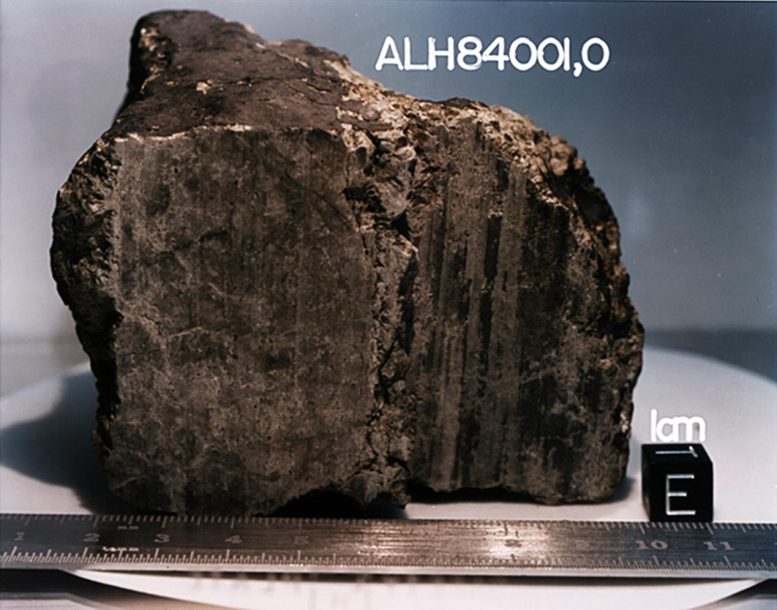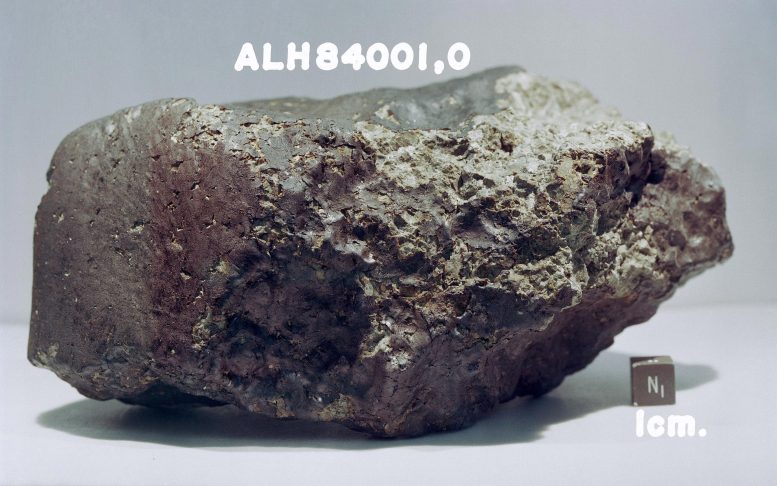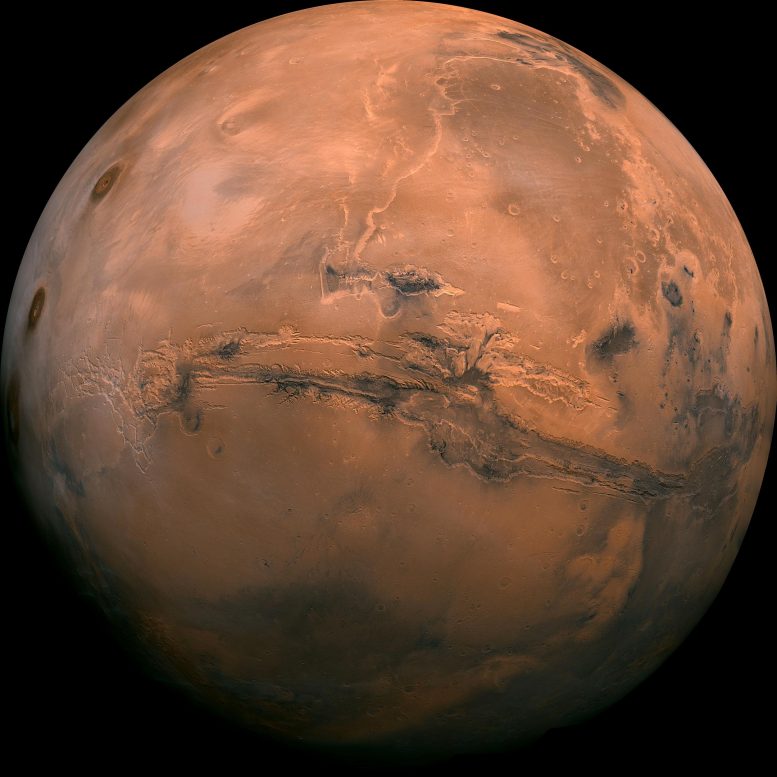
Martian meteorite’s organic materials origin are not biological, formed by geochemical interactions between water and rock.
The search for life on Mars can teach us about the reactions that led to the building blocks of life on early Earth.
Discovery of Organic Molecules in Martian Meteorite
Organic molecules found in a meteorite that hurtled to Earth from Mars were synthesized during interactions between water and rocks that occurred on the Red Planet about 4 billion years ago, according to new analysis led by Carnegie’s Andrew Steele and published by Science.
The meteorite, called Allan Hills (ALH) 84001, was discovered in the Antarctic in 1984 and is considered one of the oldest known projectiles to reach Earth from Mars.
Analyzing Martian Meteorite Origins
“Analyzing the origin of the meteorite’s minerals can serve as a window to reveal both the geochemical processes occurring early in Earth’s history and Mars’ potential for habitability,” explained Steele, who has done extensive research on organic material in Martian meteorites and is a member of both the Perseverance and Curiosity rovers’ science teams.
Organic molecules contain carbon and hydrogen, and sometimes include oxygen, nitrogen, sulfur, and other elements. Organic compounds are commonly associated with life, although they can be created by non-biological processes as well, which are referred to as abiotic organic chemistry.

Debates on Organic Compounds’ Origins
For years, scientists have debated the origin story for the organic carbon found in the Allan Hills 84001 meteorite, with possibilities including various abiotic process related to volcanic activity, impact events on Mars, or hydrological exposure, as well as potentially the remnants of ancient life forms on Mars or contamination from its crash landing on Earth.
The Steele-led team, which also included Carnegie’s Larry Nittler, Jianhua Wang, Pamela Conrad, Suzy Vitale, and Vincent Riggi as well as researchers from GFZ German Research Centre for Geosciences, Free University of Berlin, NASA Johnson Space Center, NASA Ames Research Center, and Rensselaer Polytechnic Institute, used a variety of sophisticated sample preparation and analysis techniques—including co-located nanoscale imaging, isotopic analysis, and spectroscopy—to reveal the origin of organic molecules in the Allan Hills 84001 meteorite.
Geochemical Processes on Mars
They found evidence of water-rock interactions similar to those that happen on Earth. The samples indicate that the Martian rocks experienced two important geochemical processes. One, called serpentinization, occurs when iron- or magnesium-rich igneous rocks chemically interact with circulating water, changing their mineralogy and producing hydrogen in the process. The other, called carbonization, involves interaction between rocks and slightly acidic water containing dissolved carbon dioxide and results in the formation of carbonate minerals.

It is unclear whether these processes were induced by surrounding aqueous conditions simultaneously or sequentially, but the evidence indicates that the interactions between water and rocks did not occur over a prolonged period. What is evident, however, is that the reactions produced organic material from the reduction of carbon dioxide.
Implications for Astrobiology
These mineralogical features are rare in Martian meteorites, and while carbonation and serpentinization have been shown in orbital surveys of Mars and carbonation has been found in other, less-ancient, Martian meteorites, this is the first instance of these processes occurring in samples from ancient Mars. Organic molecules have been detected by Steele in other Martian meteorites and from his work with the Sample Analysis at Mars (SAM) team on the Curiosity rover, indicating that abiotic synthesis of organic molecules has been a part of Martian geochemistry for much of the planet’s history.
“These kinds of non-biological, geological reactions are responsible for a pool of organic carbon compounds from which life could have evolved and represent a background signal that must be taken into consideration when searching for evidence of past life on Mars,” Steele concluded
“Furthermore, if these reactions happened on ancient Mars, they must have happened on ancient Earth, and could possibly explain the results from Saturn’s moon Enceladus as well. All that is required for this type of organic synthesis is for a brine that contains dissolved carbon dioxide to percolate through igneous rocks.
“The search for life on Mars is not just an attempt to answer the question ‘are we alone?’ It also relates to early Earth environments and addresses the question of ‘where did we come from?’”
Reference: “Organic synthesis associated with serpentinization and carbonation on early Mars” by A. Steele, L. G. Benning, R. Wirth, A. Schreiber, T. Araki, F. M. McCubbin, M. D. Fries, L. R. Nittler, J. Wang, L. J. Hallis, P. G. Conrad, C. Conley, S. Vitale, A. C. O’Brien, V. Riggi and K. Rogers, 13 January 2022, Science.
DOI: 10.1126/science.abg7905
The US Antarctic meteorite samples were recovered by the Antarctic Search for Meteorites (ANSMET) program, which has been funded by NSF and NASA and characterized and curated by the Department of Mineral Sciences of the Smithsonian Institution and the Astromaterials Acquisition and Curation Office at NASA Johnson Space Center, respectively.
This work was funded by NASA, Carnegie’s Earth and Planets Laboratory, and the Helmholtz Recruiting Initiative program.
Never miss a breakthrough: Join the SciTechDaily newsletter.